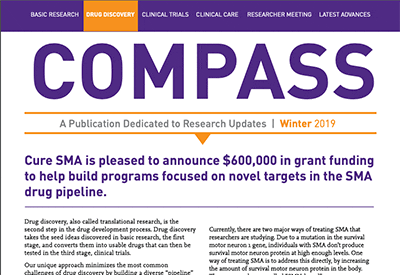Scholar Rock today announced that the U.S. Food and Drug Administration (FDA) has granted Orphan Drug Designation (ODD) to its lead antibody product candidate, SRK-015, for the treatment of spinal muscular atrophy (SMA). SRK-015 is an inhibitor of the activation of myostatin, which Scholar Rock believes has the potential to be the first muscle-directed therapy to reverse or prevent muscle atrophy in SMA patients and could be used both alone or in combination with SMN-upregulating therapeutics.
SRK-015 works by inhibiting myostatin. Myostation is a protein that works with other proteins and hormones to help regulate muscle mass. In healthy individuals, myostation limits muscle growth and differentiation, to prevent muscles from growing too large. For individuals affected by SMA, inhibiting this protein may combat the muscle weakness and atrophy that characterizes the disease.
Under the U.S. Orphan Drug Act, the FDA’s Office of Orphan Products Development (OOPD) grants orphan drug designation to drugs that are intended for the treatment of rare diseases or disorders that affect fewer than 200,000 people in the U.S. Orphan drug status is intended to facilitate drug development for rare diseases and may provide several benefits and incentives to drug developers, including assistance with clinical study design and drug development, tax credits for qualified clinical trials costs, and seven years of market exclusivity upon regulatory product approval.
“We are very pleased that the FDA granted Orphan Drug Designation to SRK-015 for the treatment of patients suffering from SMA, and we appreciate that the agency’s decision came much earlier than anticipated,” said Nagesh Mahanthappa, PhD, President and Chief Executive Officer of Scholar Rock. “This designation is an important milestone in the development of our lead product candidate along the path towards a first-in-human Phase 1 clinical trial in the second quarter of 2018.”



